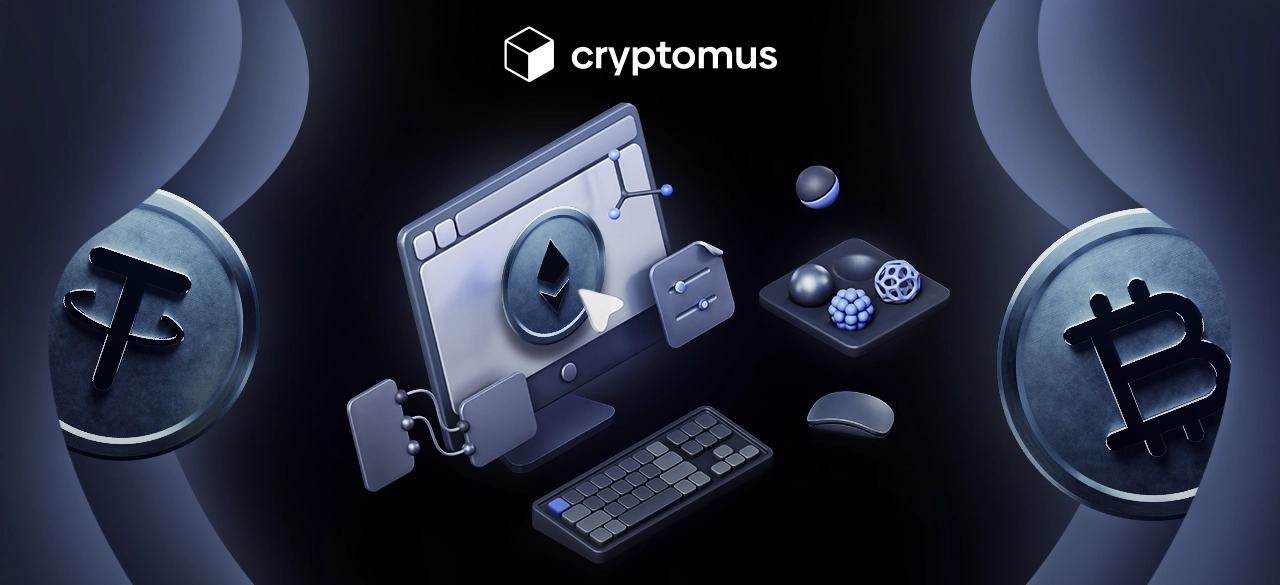
How Does Cryptocurrency Work
Table of Contents
Cryptocurrencies are one of the most popular thematics nowadays. We all have guesses about what they are, but do you really know what exactly cryptocurrency is and how it works?
After many hours reading articles online, such as How Does Cryptocurrency Work for Dummies, I understood that cryptocurrencies are digital currencies that are used to buy and sell like ordinary currencies, but how do crypto currencies work? In fact, they use a technology called blockchain and cryptographic keys.
Let’s delve into the vast world of cryptocurrencies, and I will explain to you what cryptocurrencies are and how they work, and will tell you how cryptocurrency wallets work. I will simplify it for you and help you understand.
What is Cryptocurrency
In this part of the article, we will see together what cryptocurrency is and how it works, and we will also see how blockchain and cryptocurrency work together.
Definition of cryptocurrency
How does cryptocurrency work? Cryptocurrencies are digital assets that make transactions without depending on a bank or financial institution, ensuring transparency and global payments.
Digital nature of cryptocurrencies
Cryptocurrencies are decentralized currencies, making them, at the same time, easily transferable and secure financial services, but they are susceptible to loss, theft, and volatility, making them risky investments.
Decentralization and blockchain technology
Blockchain technology is a technology that enables secure and transparent transactions in decentralized systems such as cryptocurrencies, offering increased security, transparency and reduced costs.
Key Components of Cryptocurrency
Now that you have seen in detail what cryptocurrency is and how it works, let's see its key features.
Blockchain technology
How would cryptocurrency work without blockchain? In reality, the blockchain is a distributed ledger technology that records all cryptocurrency transactions. It is a secure and transparent way to track ownership of digital assets.
Cryptographic security
Cryptography is used to secure cryptocurrency transactions and protect user data. It also enables users to control their funds without the need for a trusted intermediary.
Decentralized ledger
Decentralized ledgers provide secure, transparent, and auditable tracking of digital assets like cryptocurrencies and NFTs, benefiting industries like supply chain management, medical records, and voting systems.
How Transactions Work
How does cryptocurrency work? Cryptocurrency transactions utilize a decentralized blockchain, allowing users to create fast, secure, and transparent transactions with low fees, making them valuable for international applications.
Cryptocurrencies require a wallet or portfolio, with platforms such as Cryptomus offering multiple wallets for each cryptocurrency.
Sending and receiving cryptocurrency
To send cryptocurrency, create an account on Cryptomus and access multiple wallets for each asset supported by the platform. Go to your wallet, click on withdrawal, enter the recipient's wallet address and amount, share the wallet address with the sender, and validate the transaction.
Transaction verification and validation
Transaction verification and validation are vital in cryptocurrency transactions, ensuring network requirements are met, nodes are verified, and miners add blocks for accuracy and fair processing.

Transaction fees
How does cryptocurrency work with fees? Cryptocurrency fee payments for processing and securing transactions, incentivizing participation, and covering blockchain costs. They vary based on network congestion, transaction size, priority, and the platform you are using.
Advantages and Disadvantages of Cryptocurrency
Cryptocurrency, a digital currency, offers enhanced security and global accessibility. Let's explore together its benefits and disadvantages.
Advantages like decentralization and accessibility
• Financial freedom: Cryptocurrency empowers individuals to manage their finances independently, particularly in unstable countries or those struggling with traditional financial services.
• Lower fees: Transactions with crypto typically have lower fees than traditional bank transfers due to the absence of a third party involved in processing them.
• Faster transactions: Transactions are generally faster than traditional bank transfers due to their lack of regulatory hurdles.
Disadvantages including price volatility and regulatory concerns
• Price volatility: Cryptocurrency volatility can pose a challenge for businesses in pricing their products and services in this digital currency.
• Regulatory concerns: Governments lack widespread regulation for cryptocurrencies, creating a lack of clear legal framework.
• Risk of loss: The high price volatility of cryptocurrencies can lead to significant losses for investors.
Storing and Managing Cryptocurrency
To securely store and manage cryptocurrency, choose a reputable company, use strong passwords, enable two factor authentication, securely store private keys, regularly backup, and be cautious of phishing scams.
Real World Use Cases
Real world Use Cases of cryptocurrencies demonstrate their potential to revolutionize finance, supply chain, and other industries through practical applications in various sectors.
Cryptocurrency as a digital currency
Cryptocurrency is a decentralized currency that offers benefits like transparency, security, and accessibility, making it popular for online payments.
Smart contracts and decentralized applications
Smart contracts and decentralized applications are based on the blockchain with automatic contracts like financial agreements, supply chain management, and voting. These technologies offer decentralization, transparency, security, and efficiency.
Popular Cryptocurrencies
After the creation of Bitcoin in 2009 and its popularity, many other cryptocurrencies were created, such as Ethereum, Tether, Binance Coin, Tron and many others, each with unique features and applications.
The Future of Cryptocurrency
After seeing what crypto money is and how it works, and also how does a cryptocurrency wallet work, let’s see what the future reserves for cryptocurrencies are and how they will change our way of trading.
• Decentralized financial system: How to talk about what cryptocurrency is, and how it works without talking about decentralization. The main specificity of cryptocurrencies is that any government or financial institution can’t control them. This could lead to a more equitable and inclusive financial system
• How do cryptocurrency wallets work: Transactions in cryptocurrencies are recorded on a public place called blockchain, and thanks to this, it could help to reduce corruption and fraud and make financial markets more efficient.
Blockchain technology powers cryptocurrencies, and this technology allows cryptocurrencies to offer decentralization security and transparency, lower fees, and faster processing through decentralized transactions involving user requests verification and block addition.
Thank you for reading this article. It helped you to understand what a cryptocurrency is, and how it works. Leave a comment below and share with us your thoughts.
Simplify Your Crypto Journey
Want to store, send, accept, stake, or trade cryptocurrencies? With Cryptomus it's all possible — sign up and manage your cryptocurrency funds with our handy tools.
Get Started









